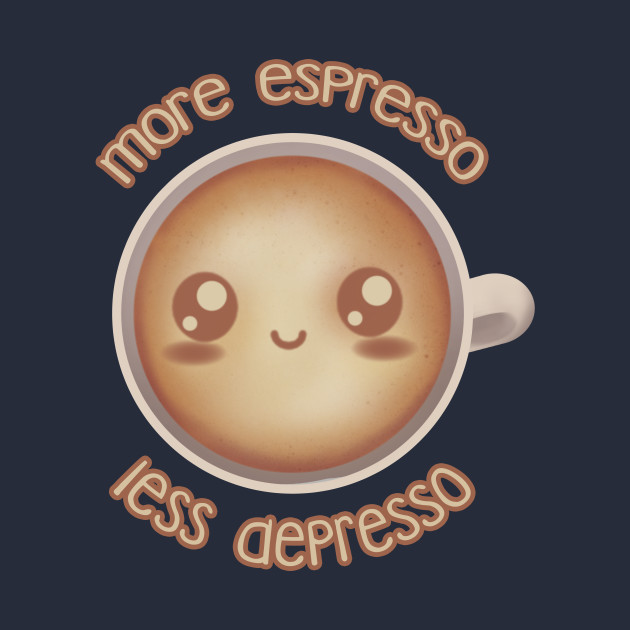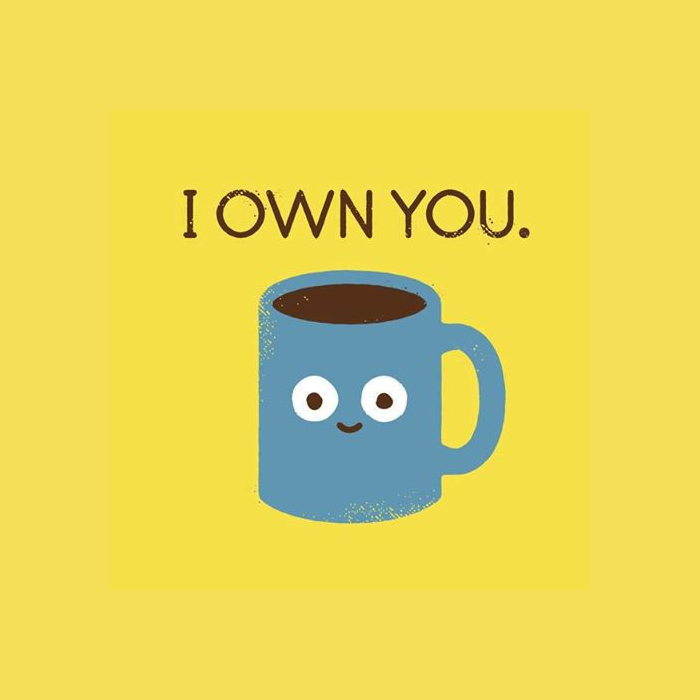The only thing stopping me from a bad idea is another competing bad idea.
–Adam’s first rule of infinite bad ideas.
That sentence alone may as well summarize everything from my professional career as a freelancer to my time at university, yet somehow I still come across work and maintain my knowledge as a web developer while ardently pursuing how to improve my craft as a writer. Despite this, I often feel like there aren’t enough hours in the day to get what I want done. What follows is a vicious cycle that starts with the (mistaken) thought process that I’d be wasting time if I got the sleep I needed, leading to me begrudgingly trudging through the late hours of the night -potentially into the early hours of the morning of the next day- running off of caffeine and the will of God to feel marginally more productive than I did hours before when the sun was still in the sky. Suffice to say, I needed a change from “more espresso, less depresso.”


A few days before my second Ramadan in lockdown during the COVID crisis, I took some time to reflect on my habits and found myself stuck on my dependence on caffeine as a fixture of my everyday routine. As much as I enjoy the process of making coffee and the chemistry-lab-like appeal of experimenting with ratios and preparation methods, my excessive consumption made it harder to unwind, sleep, focus, recall things, and structure my day all while exacerbating my existing issues with anxiety. I didn’t want to entrench that dependence even further and enable even worse habits down the line that could lead to financial ruin, severe deterioration of my health, or any adverse consequence that could affect myself and my loved ones.
With a day left to go before Ramadan started, I decided to completely cut caffeine for the entirety of the month and to compensate for the lack of caffeine, I’d be doing increasing reps of push-ups, sit-ups, squats, and jumping jacks throughout the next 30 days to hit a monthly challenge I was tracking through an app called OneRep on iOS. Unfortunately I had no time to ramp down my habits so I figured now was just as good of a time to start than ever and to go cold turkey right away. I figured, “what’s the worst that could happen?”
And by truth, that was an apocalyptically bad idea.
At first, anyway.
The first few days were utterly miserable with an unbearable headache occurring throughout the day before Ramadan and the first three days of the holy month. Whether it was because I was fasting from food and water on top of fasting from caffeine, I didn’t know nor did I care when the only things going through my head were “Ow my head”, “Oh right, I can’t drink water till around 8:30PM”, and “Oh yeah, I can’t curse or shout for 30 days despite how annoyed I am about literally everything to the point of wanting to throw my laptop out of a window, yet the other 335 days of the year is fair game to do that and then some. Go figure!”
Despite the issues I had throughout the first few days, I felt noticeably less erratic while focusing on tasks ranging from cooking to web development to writing than if I’d loaded up on caffeine prior to getting anything done. To account for how irritable I was, I massively reduced how many calls I took while getting into the swing of things with my new habits and focused most of my work communications via email and text wherever possible. Whatever calls I had to make took place with little issues and changes to the tone of voice I use when talking to people over the phone or through Zoom. Best of all, my sleep habits began to self-regulate and the aforementioned exercises were a light tailwind to my energy levels that helped me get what I needed to do done and got me to deeper sleep faster.
At this point, the benefits were starting to become more pronounced and the headaches became little more than minor annoyances by the time day 5 of Ramadan had passed. By the very next day they were completely gone and a level of calm, collected focus arrived in place of my caffeine deprived irascibility. That wasn’t to say there weren’t any issues; one time in the middle of Ramadan I stayed up for 25 hours straight as I worked on and gave a presentation on app development and then took a phone call to answer questions on a site redesign contract I landed a mere two hours later. Looking back, it taught me a valuable lesson in not answering calls when I’m too exhausted to coherently answer things properly and shortly after disclosing that fact on the call, my client urged me to get some rest. I even made note of that in research notes that I sent to my client much to their amusement (and my embarrassment).
It taught me that time management was just as important as the way I took care of myself, so I made sure to structure my day around making sure I was mentally and physically capable of getting things done without straining myself even if I was running on no food and water throughout the month. When I had managed to work on a side project, make a few calls, consult on a web site I was contracted to develop, make Iftar and got my workouts done all in a single day as it started to become a routine, something clicked in my mind that I hadn’t really thought about up until I stepped away from the habit I picked up throughout my life and career.
There’s this ingrained view on caffeine consumption as a means toward increased productivity in tech circles regardless of the impact it might have on someone’s well-being. Coupled with the pressure of looming deadlines and rapidly accelerating sprints in an extremely competitive industry and you have a recipe for a volatile working culture that places endless productivity on a pedestal at the expense of a lot of impressionable young developers starting their new careers and later placing them on a path toward dependence on the most widely used and sold drug on planet Earth.
Consuming caffeine with careful moderation and knowledge of what your body can take isn’t a big deal on its own, but what about someone who lacks the ability to self-moderate effectively or lacks the framework to do it on their own? That pathway to caffeine dependence can lay the foundation to self-medication via drugs and alcohol and, if left unchecked, addiction. It’s an issue that’s systemically tied to capitalism and companies across industries the world over and combined with long hours and practices such as 996 and crunch and the relative lack of access to health resources, it contributes to working conditions that are as rigorous as a meat-grinder to new and old employees alike. It makes matters worse that in “world-class” cities such as Toronto, the police actively criminalizes and convicts people’s addictions and mental health issues rather than assist in their rehabilitation.
It’s been a few months since Ramadan ended and my caffeine fast with it. I’m back to drinking coffee again but with a strict limit on how much I’m drinking along with notes taken on how I feel depending on how much coffee I make. The changes to how I perceive time management are still holding true to this very day albeit with some cracks. Sometimes I’ll fall off the wagon with my time management and it doesn’t feel right to ascribe them to the pitfalls of drinking excessive amounts of coffee; often it comes down to good ol’ fashioned anxiety.
I’ve been working to address what makes me feel that way and how to best respond to it when the pressure begins to climb, be it through reading books, journaling, or any other creative outlet to help me work through that. Were it not for what I put myself through during Ramadan, I don’t think I would’ve managed to discern what the root issues were and how to work to fix them. It’s a process I’m still going through and learning as I go but no matter what mistakes I make or obstacles I face, I’m confident I’ll figure it out through constant iteration, much like the adamant slogan of my freelance company.
And so, in light of this “apocalyptically bad idea” helping to lift the fog that clouded my brain for so long, I feel good saying that this ends with a new rule to my law of infinite bad ideas:
Everyone loves a bad idea when it works.
-Adam’s second rule of infinite bad ideas.